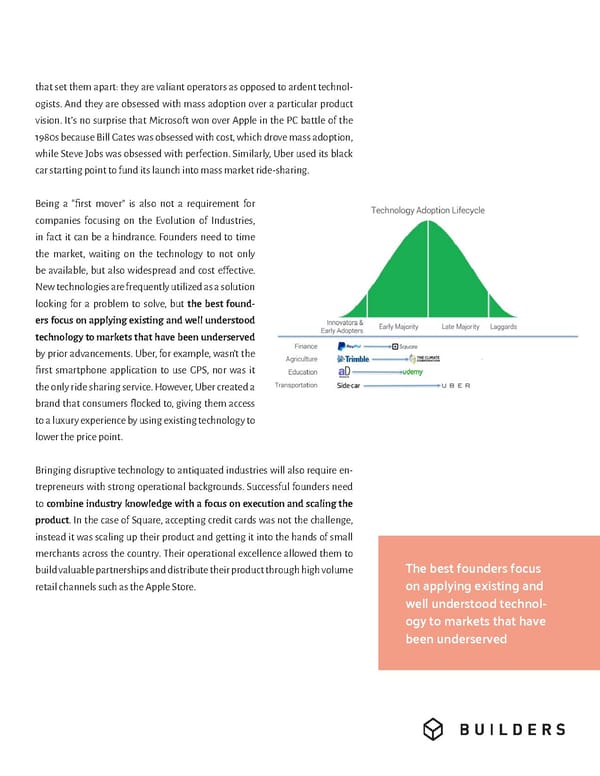that set them apart: they are valiant operators as opposed to ardent technol- ogists. And they are obsessed with mass adoption over a particular product vision. It’s no surprise that Microsoft won over Apple in the PC battle of the 1980s because Bill Gates was obsessed with cost, which drove mass adoption, while Steve Jobs was obsessed with perfection. Similarly, Uber used its black car starting point to fund its launch into mass market ride-sharing. Being a “first mover” is also not a requirement for companies focusing on the Evolution of Industries, in fact it can be a hindrance. Founders need to time the market, waiting on the technology to not only be available, but also widespread and cost effective. New technologies are frequently utilized as a solution looking for a problem to solve, but the best found- ers focus on applying existing and well understood technology to markets that have been underserved by prior advancements. Uber, for example, wasn’t the first smartphone application to use GPS, nor was it the only ride sharing service. However, Uber created a brand that consumers flocked to, giving them access to a luxury experience by using existing technology to lower the price point. Bringing disruptive technology to antiquated industries will also require en- trepreneurs with strong operational backgrounds. Successful founders need to combine industry knowledge with a focus on execution and scaling the product. In the case of Square, accepting credit cards was not the challenge, instead it was scaling up their product and getting it into the hands of small merchants across the country. Their operational excellence allowed them to The best founders focus build valuable partnerships and distribute their product through high volume retail channels such as the Apple Store. on applying existing and well understood technol- ogy to markets that have been underserved
 The Evolution Of Industries Page 4 Page 6
The Evolution Of Industries Page 4 Page 6